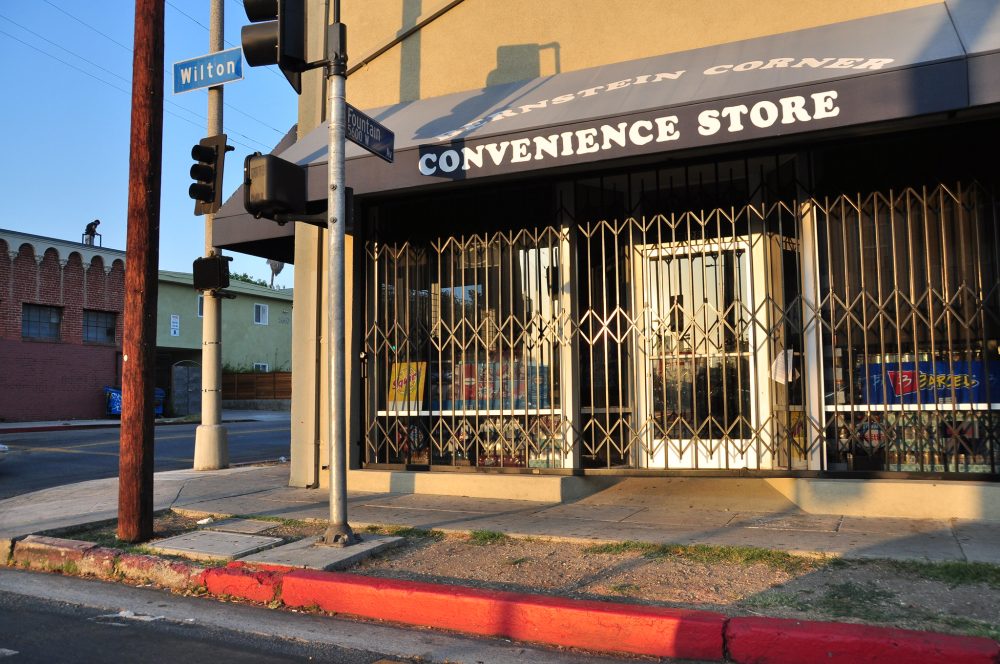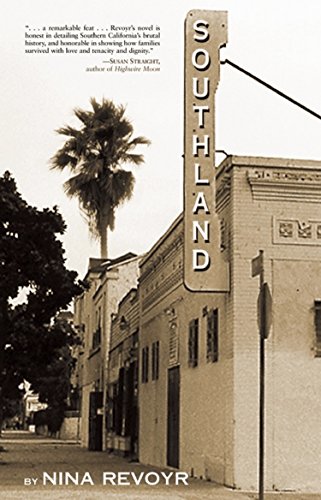After several grueling hours of protesting against systemic injustice (no one can prepare you for long hours on your feet, long hours screaming for recognition of your humanity), we stood with our signs tucked safely under our arms as the organizer introduced some parting words. The speaker was an older Black man, the weariness of the movement evident in his face and in the way he leaned against a streetlamp for support. But his passion was clear in his speech as he declared that we were not the first to fight for our rights, and we will not be the last: he was protesting in the streets back in his early adulthood, the same way we were today. It was then that I looked at the faces of the people around me; some couldn’t be older than sixteen, and some as old as the speaker, or older. It was in the aftermath of being surrounded by these people, all aligned in our goal for the abolishment of the systemic injustices that cause Black oppression, that Nina Revoyr’s literary crime novel Southland came to mind.
I first encountered this sweeping tale of past and present iterations of Los Angeles, of riots, looting, and the reincarnations of allyship, in my Asian American Literature class, junior year of college. My professor had casually remarked that it was her favorite novel of all the ones we read; I was too awash in pre-finals anxiety to give her remark a second thought. It wasn’t until I came home from the protest that I gave the text the attention it deserves. A story about injustice dressed up as a detective novel, Southland reminds us that activism is both an ongoing project and a deeply personal choice.
The pathway to justice in Southland is a quiet storm, at odds with the loud righteous moment going on today—but the unity in creating genuine change remains the same, predicated on the past. Southland draws on Los Angeles’s history of activism—the Watts riots of 1965 and the Rodney King riots of 1992—but also shows how that hunger for change can manifest in isolated actions, in individual lives. Today, we take to the streets, we sign petitions and start hashtags that address the various inequalities Black people face in the workplace. We are very loudly and openly discussing the systems that have led to decades long, ongoing oppression. These open discussions are no longer isolated to a single March on Washington, or even a city-localized riot: this is a national conversation gone worldwide. Southland reminds us that it must become personal, too.
‘Southland’ shows how the hunger for change can manifest in isolated actions, in individual lives.
The protagonist of Southland, Jackie Ishida, discovers in reading her grandfather’s will that he played a role in a multiple homicide decades earlier, during the Watts riots. Jackie and her acquaintance turned friend, James Lanier, a cousin of one of the victims, look into the murders and fight for a legal investigation. Along the way, Jackie learns more about her grandfather, and about the history of Los Angeles through the eyes of those she encounters along her journey. The journey Jackie Ishida goes through in uncovering her grandfather’s past, and the important weight his corner store holds to the surrounding Crenshaw community, means so much more to me now in the wake of the media’s spin on rioting and the national attention on the police state we live in.
Jackie Ishida, a second generation Japanese American, is, like so many of us, comfortably enveloped in privilege. Much of the conversation lately has shined on the workings of white privilege and the ways it bleeds into every aspect of our livelihood, but it’s important to speak on the ways we as black and nonblack people of color have privilege, too. In order to truly dismantle systemic injustice, there must be a dedicated effort to address the variant intersections that allow for some of us to be ahead of the curve, while others struggle to even see where the curve is. One of those privileges often, is silence: the ability to not speak up on the sufferings of others worse off than you because you are doing fine. For Jackie Ishida’s family, though, this silence became a double-edged sword.
In so many ways, Jackie Ishida’s family suffered: internment, forced participation in World War Ⅱ, constant mistreatment from white people due to their being Japanese. But rather than address the systemic injustices they faced, they secured higher positions (and profit), letting their silence wrap around them like a noose. “Her family didn’t talk,” Revoyr writes. “None of them, including her grandfather. No words laced together into a chain of intertwined stories that connected her to anyone’s past. More than gaps in the narrative; there was no narrative. Whole years, like the years of World War Ⅱ, dropped cleanly from their collective history.” This silence eventually disconnects Jackie Ishida so much that she is uncomfortable addressing race or racism in any way, which is its own privilege. If you cannot speak up for others, how can we all dismantle the system?
If you cannot speak up for others, how can we all dismantle the system?
This silence is also the reason why she knows nothing about her grandfather, or the shocking scene that lies at the core of Southland’s intrigue: four Black boys found dead in the freezer of his store in the aftermath of the Watts riots. No one cared enough even to report it. Jackie’s inability to reconcile her grandfather’s past with her concept of him is how the tale begins, but it expands into an investigation of what it means to renounce the privilege of silence and ignorance. The novel is a love letter to Los Angeles, but also a gentle takedown of Jackie’s assumptions and judgmental nature, the legacy of growing up enveloped in privilege and a genuine lack of awareness.
Discovering the bodies is the catalyst for Jackie to start filling the silence with noise, creating a narrative with pieces of the past: through constant discoveries, old and new, of her grandfather’s role in Crenshaw and the homicides. Jackie’s insistent probing into the multiple homicide becomes her connection to a history of oppression and activism; despite his silence in life, she feels her grandfather “practically willed it.” Like myself when I stared into the eyes of the people protesting with me, Jackie feels the totality of the past, long ignored in her family, and uses her privilege to bring it to light.
The past is always rearing its head and making itself known in the present, in the future.
Perhaps it is Jackie’s recognition of her grandfather’s loneliness, or her desire to piece together the bits of noise amidst the silence, but she does everything in her power to give the murdered Black boys justice — and in doing so, discovers her family’s past. Her family’s past, the history of Frank’s store, is simply the beginning. The past is always rearing its head and making itself known in the present, in the future. Jackie’s reflection on how the Rodney King riots of 1992 were portrayed in the news, as the media described the looters, rings true to today’s 2020 media coverage: “’it’ was coming closer to ‘us’; telling their viewers —as if they couldn’t see and smell for themselves—of the smoke that hovered over the city.” The media has a history of taking whole swaths of people (often people of color) and painting them as the Other, a dangerous conglomerate threatening any source of normalcy. This “it” versus “us” dynamic echoes today as we see people who riot and loot are called “outside agitators,” as people discuss looting with more care than the fact of Black people losing their lives to police every single day.
One of my favorite moments in the text is when Jackie finally steps foot on the ground where Frank’s store used to be, though it suffered damage after the aforementioned Rodney King riots of 1992.
Her grandfather’s money had been made and lost here. Four teenage boys had died here. It seemed to Jackie that if she could just get inside, beyond the boards, the answers would all be available to her, scattered among the ashes. … Her past was like this neighborhood—still there, intact, but she had never bothered to visit.
Frank’s store’s existence, standing through riots, looting, and death, is what drives Jackie. Frank’s store is a piece of history; a chance for Jackie’s redemption and her ability to restore a narrative otherwise lost to her. Jackie’s past, her grandfather’s past, the history of Crenshaw, is only the beginning. I spent some time protesting in the neighborhood I grew up in—the place I hung out with my friends after school, the place I grew into the steadfast woman I am today. Bringing the fight for our rights to such a local place has changed me forever, in ways I’m incredibly proud of. The same sentiment stands for Jackie, who is driven to change her present after setting foot in her grandfather’s past.
The past is prologue. The Black Lives Matter movement has existed for going on a decade, and yet it is only the beginning, a continuation of the work done by civil rights activists of the ’60s, of the Watts riots of 1965, of the Rodney King riots of 1992. We are standing on the backs of those who have fought long before us, and we all would be better if we remembered that. The news is telling one story of rage, looting, and woe, but as in Southland, we must create our own story.

